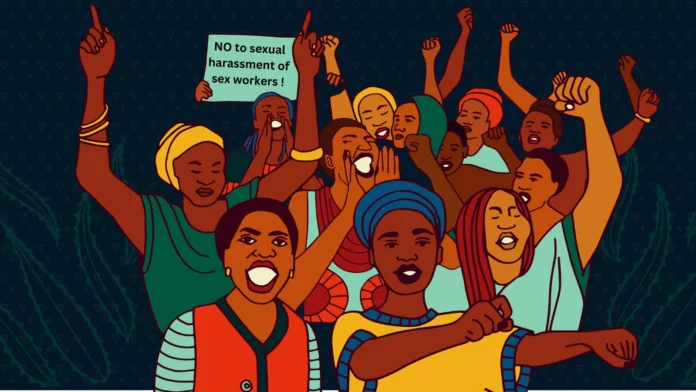Female sex workers (FSWs) in Benue State have been encouraged to form associations to strengthen their collective voice and protect themselves against gender-based violence (GBV), police harassment, and social discrimination.
This call was made by the Director of Programmes and Strategy at the Concerned Women International Development Initiative (CWIDI), Bridget Okeke, during a capacity-building workshop organised by the organisation with support from the French Embassy in Nigeria.
Okeke, who spoke at the workshop which was held at Kings Inn Hotel, Gboko, stated that organised associations would enable FSWs to access support from government institutions and non-governmental organisations, while also enhancing their ability to engage constructively with authorities.
“We are working to engage the police, the Human Rights Commission, and other stakeholders to promote the protection of vulnerable groups, especially female sex workers,” she said.
She cautioned against seeking justice through informal and often dangerous means, such as involving community vigilante groups or “area boys,” which can result in jungle justice.
Instead, she encouraged participants to organize and elect representatives who could advocate on their behalf and engage with relevant institutions.
A legal expert, Barrister Awashima Adingi, who facilitated a session at the workshop, revealed that 30 per cent of Nigerian women aged 15–49 have experienced physical violence, while up to 65 per cent face emotional, economic, or sexual abuse.
Adingi advised participants to utilise the legal knowledge gained during the training to report GBV cases to the police or appropriate authorities, rather than remaining silent.
Participants shared harrowing experiences of abuse by brothel owners, law enforcement officers, and members of the community.
They recounted being forced to pay for services they did not use and enduring degrading treatment.
Many attendees expressed a renewed sense of purpose and urgency, promising to begin the process of forming associations in their communities. They noted that such collective action would help them negotiate for better conditions, report abuse, and access critical services.
The workshop participants commended CWIDI and its partners for organizing the training, describing it as timely and empowering.

